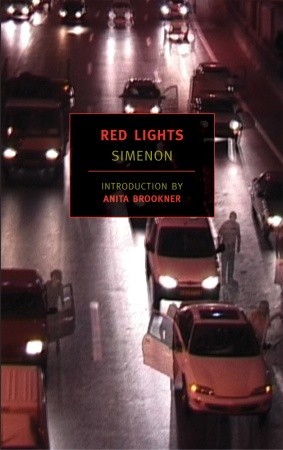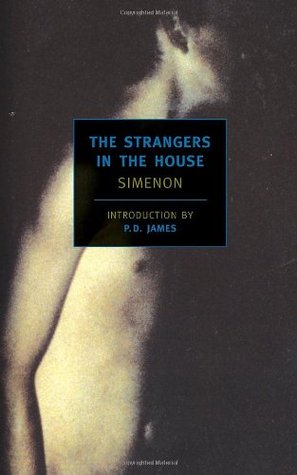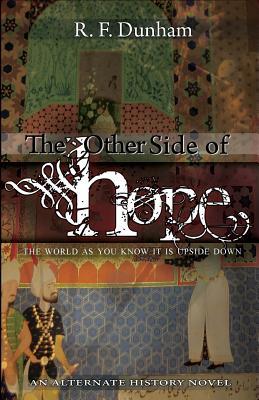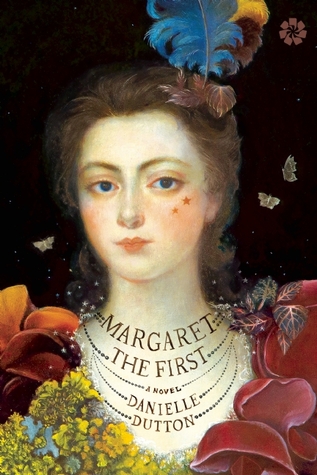AMERICAN METEOR: A Novel
NORMAN LOCK
Bellevue Literary Press
$15.95 trade paperback, available now
Rating: 4* of five
The Publisher Says: In this panoramic tale of Manifest Destiny, Stephen Moran comes of age with the young country that he crosses on the Union Pacific, just as the railroad unites the continent. Propelled westward from his Brooklyn neighborhood and the killing fields of the Civil War to the Battle of Little Big Horn, he befriends Walt Whitman, receives a medal from General Grant, becomes a bugler on President Lincoln’s funeral train, goes to work for railroad mogul Thomas Durant, apprentices with frontier photographer William Henry Jackson, and stalks General George Custer. When he comes face-to-face with Crazy Horse, his life will be spared but his dreams haunted for the rest of his days.
By turns elegiac and comic, American Meteor is a novel of adventure, ideas, and mourning: a unique vision of America’s fabulous and murderous history.
My Review: At some point in this brief, pithy book, I caught myself wondering why I was turning pages so fast, why I couldn’t wait to find the next golden moment described in lovely, burnished prose, when I knew how the story ended already. It’s not a mystery, it’s not a puzzle novel, it’s a meditation on the Manifest Destiny era. The myth of the poor lad who comes from nothing and nowhere to make a fortune is an oft-told tale. Lock’s spin on that is to have the traditional humble lad, this on named Stephen Moran, as protagonist:
While my father was out boozing, she'd read to me by the stub of a candle, a thread of soot twisting upwards from its pinched, meager flame. By her voice alone, she could raise up the old stories from the bones of their words and--lilting between shades of comedy and melodrama--turn the dreary space around me into a stage for my wildest imaginings.And while she’s creating the world anew for her son, she’s also priming the pump for his life-long belief that there is fate even if there isn’t a god to be found, since all the old fairy tales involve come-uppances and just deserts.
Growing up in antebellum Brooklyn, harvesting oysters to sell for his own food, and working all the hours it’s possible to work leaves the narrator with a clear-sighted picture of his future. His childhood, if you can stretch a point and call it that, ended with mother’s death. Hard work, little pay, no future:
I had sucked on the tit of disillusionment and teethed on the bitter root of cynicism. I was on the way to the misanthropy that would sour me.Intervention in this soul-killing, life-shortening grind is the cataclysm of the Civil War. Young Stephen Moran takes an escape route from worthless labor and attaches himself (at thirteen, he can’t really be said to join) to the Army. He becomes a bugler and loses an eye, but these events aren’t dwelt upon. Moran is more interested in analyzing “the sickness of the degenerate age in which I lie at night, listening to the boasts and grievances of the dead” for his audience, interested in the powerful figures of the age for their benign or malign impact on creating the age he’s lived though.
Looking back, reminiscing, nostalgically reliving moments of pleasure, momentous and public or quiet and quotidian, isn’t in Moran’s nature. He is leaching the poison of a life into his listener’s ears. He has seen but never made a difference to events that form the national mythology:
Even now, when I have time to consider what I've been and what I am, I doubt I comprehend my humanity, if I can claim so grand a word for my own morsel of life. I might as well be a meteor of a man, for all the difference I've made on earth.The perspective of the aging on the course of life isn’t always so searingly honest, but it serves the narrative needs of the story for it to be so. I hope for all our sakes that such unflinching clarity becomes pandemic in our own degenerate, I’d even say diseased, age.
Back to the Civil War...Moran’s lost eye lands him in the hospital, where he’s visited by a familiar figure from his life in Brooklyn and Manhattan, Walt Whitman. As Whitman pauses beside the bed of our sixteen-year-old hero, they share a moment that will stay with Moran his whole subsequent life:
‘How old are you, son?' Whitman asked.Receiving such a benediction from the “poem-stained fingers” (isn’t that a lovely phrase?) of America’s most revered poet? Oh my! And the effect of Moran’s story on Whitman leads to a momentous change in the fortunes of a no-longer-needed bugler from an ended war. Whitman remembers Moran, and mentions the tale of his heroism to General Grant. Grant summons the lad, gives him a Medal of Honor for sacrificing his eye, and gives him one of the signal honors available to any American soldier at the time: he is to be the bugler playing “Taps” at each stop of Lincoln’s funeral train as it wends its way from Washington to Springfield, Illinois, for the assassinated president’s ceremonial burial.
'Going on seventeen.'
'So young,' he said, stroking the back of my hand with his poem-stained fingers. 'How did you come to lose your eye?'
I told him the story of my heroism, with embellishments--told it so well, I was nearly persuaded of my exceptional character.
'You sacrificed what little you had to call your own for democracy, freedom, and human dignity. You gave an eye, half of man's greatest blessing, when rich men up north paid a small price to keep themselves and their sons from harm.'
With those few words, accompanied by a glance that seemed to measure the dimensions of my meager existence, Whitman made me see myself as a sacrifice on the altar of wealth, but a hero notwithstanding.
Moran has plenty of time to accustom himself to the smell of death, from battlefields to the decomposing president. He sleeps in the funeral car, an ostentatious gift from the railroad interests to the living president for his use in meeting with his generals in the field. (Lincoln scorned it, never used it, while alive.) It is usual to meditate on the dead princes of our world, and Moran is no exception:
What is a good man if not one who does not believe in himself to the exclusion of others? ... He was asked to bear what cannot be borne--what should not be borne. I hope never to be so tested, for I have it on the best authority that I will not bear it.No ordinary person can bear the extreme pressure of the Presidency; Lincoln bore it in time of civil war. Moran is far from alone in his realization that his ordinariness is also an advantage. His life after the brief flash of fame will go on, unlike Lincoln’s. He will go on, traveling and meeting remarkable men, running from all women, all of which confirms his core belief:
For all my wanderings, I'm ordinary. I came to terms long ago with my littleness. A man is what he is--he can't rise so much as an inch above his shortcomings--Horatio Alger be damned!It doesn’t matter that one rubs shoulders with the world’s history-makers, alive or dead. You are what you are, and that’s all there is to it. Heresy to think, still less speak aloud, in that time of Manifest Destiny’s ascendency. Moran rides in the Lincoln Parlor car as a steward to the paladins of the day. He watches the slaughter of buffalo in their millions. He sees mile-long swaths of prairie grass torched to amuse the grandees.
As horrible as he thinks all of that is, it brings Moran his life’s purpose: He becomes a photographer as the largesse of his railroad tycoon employer. He documents the progress of the railroad through the Indian country his government swore would be theirs in perpetuity. His mentor, famous wilderness photographer William Henry Jackson, makes photographs for the railroad tycoon as a means of financing the his true passion: recording the end of the people called the Ute, starved, shot, and left for disease to finish off. Jackson chose Moran as his assistant when Moran was learning basic photography from Jackson’s portrait-taking brother in Omaha. Jackson scorned this as much as he scorned the documentary whitewash he splashed on the railroad, an attitude that well suited Moran. It was Moran’s gift to watch genius work:
What was not possessed of the 'fat light'--an immanence that shed radiance over the world of gross matter--should be left to the portraitists of sausage-shaped ladies and their rich consorts.It was also Moran’s fate to travel, in the teeth of the oncoming winter, with Jackson to photograph the Ute in their last days. As reluctant as Moran was, it provided him with the agreeable experience of first love with a Ute girl. What makes his experience endurable, though, and allows him to cling to the edge of life:
The negatives he did manage were made in the hour or two when the sun seemed to rally with a yellowy light reminiscent of an egg yolk; usually, it looked pale as a pearl on the steely blue or leaden sky above the snow-scrubbed lake. That's a purple passage fit for a novel but hardly descriptive of the actuality of that winter, which was almost past enduring.Jackson’s art, his astonishing eye and precise technique, set a bar that Moran knows he can never reach, still less surpass. He is, however, urged on by the brush with greatness.
As Jackson heads off deeper into the wilderness, Moran heads to Fort Abraham Lincoln, there to attach himself to General George Armstrong Custer as personal photographer. He is mesmerized by the aura of Manifest Destiny shining from Custer’s brilliant golden locks. As he observes Custer more and more, and from an intimate viewpoint, Moran comes to loathe the man, as he already loathed the philosophy that he embodies:
At his request--a Custer request was a command impossible to refuse--I produced a series of prints for the Centennial Exposition at Philadelphia: the general with Bloody Knife, his favorite Indian scout; with the Custers' pack of eighty dogs; with his junior officers, planning the destruction of the Lakota Sioux; with Libbie in the parlor of their quarters at the fort; and the general striking a pose that would become as recognizable as Napoléon's; arms folded across his chest, looking forward and slightly upward at his magnificent destiny.The repugnance of the images makes my skin crawl. Lock’s clarity and transparency of prose has a way of allowing the underlying emotional state to reach me before I’m aware that what I’m reading is horrible, vicious, evil, full of the darkest smoke from hellfire. Moran, in whose mouth these utterances are placed, is himself invisible. He feels, as he’s said, his own smallness, and this is what makes him the perfect mouthpiece for Lock’s excoriation of our founding Western myths.
Moran makes his most life-changing decision while preparing to photograph the slaughter at Little Big Horn. In the run-up to this national tragedy Moran determines that it will be he who kills Custer, he who will stop this particular monster from causing more horrendous suffering, win or lose. The hubris of which Custer was guilty in his pursuit of the battle made Moran’s task, oddly, more difficult, as it led directly to the almost immediate destruction of his forces. Yet Moran manages to carry his self-imposed duty to its end: He shoots Custer in the temple, destroying the seat of his evil thoughts.
And at this moment, Moran (the only white survivor of the massacre) has the single most important meeting and takes the single most important photograph of his life. A figure bends over him, he thinks to finish him off. Instead Moran will lose the autonomy of his soul.
It is Crazy Horse who seeks Moran out. Crazy Horse, the seer whose prophecies began this branch of the war that will end at Wounded Knee, in bitterest defeat for the Native Americans. Crazy Horse gives Moran the “gift” of prophecy. Moran, in his turn, gives Crazy Horse the Medal of Honor he has come to despise. Prophecy is a gift that Crazy Horse gives him by the simple expedient of living on after his body dies in Moran’s mind. Crazy Horse as an intimate roommate? Sounds horrible, knowing the future and seeing its inevitability as Fate unfolds before your eyes:
A sour view of things, I grant you; but one borne out by the history of our age and of the age to come, when Trinity--not the Christians' but Oppenheimer's--will turn Alamogordo sand to glass. In the future, dead cities will molder behind rusting thorns no prince can ever penetrate; dirty bombs will engender tribes of lepers--not by germs, but by deadly atoms; and radioactive isotopes will be left to cool for an age or more, sealed in burial chambers with a pharaoh's curse.As the reader shudders with the sense of doom, Moran’s listener is finally revealed to be his own doctor house-calling on him at the end of his life. All the years of his small life after the last brush with Manifest Destiny, Moran has never so much as whispered of his extraordinary dual nature and his fellow passenger.
He also tells the doctor that he has the only image of Crazy Horse on earth. His camera had fallen with him during battle and, against all odds, the glass plate did not break and the lens exposed Crazy Horse’s image. The doctor asks why wouldn’t you sell such an incredibly valuable image, the price would be astronomical. Sell?
Crazy Horse said, ‘Remember this moment well.’
‘I will,’ I said solemnly…
‘I’m going to spare your life so that you’ll never be free of me.’













